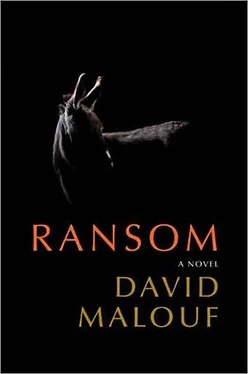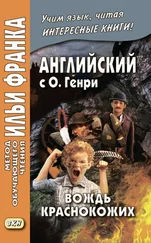At last, with a buzz of approval from the crowd, Hippothous and Dius reappear and a four-wheeled cart is trundled in, a fine new one, the marks of the adze still visible on its timbers. The twelve-spoked wheels are elaborately carved and painted, a wickerwork canopy covers the tray. All is of the most ingenious design and intricate workmanship.
Behind, attended by two grooms, walks the king’s herald, Idaeus, plainly but splendidly attired, bearing the royal staff; and with him, in an impressive cavalcade, Priam’s ceremonial chariot with two thoroughbred horses between the shafts, elegant, high-stepping creatures all liquid muscle and nerve, their manes plaited with thread-of-gold.
Priam is immediately in a rage. He leaps from his seat, and the princes, who know what he is when he is roused, draw back.
‘Are you deaf?’ he shouts. ‘Did not one of you hear me when I spoke? Or am I so old and feeble now that you no longer feel obliged to take the least notice of what I say? I asked for a cart, an ordinary mule cart, not this … carnival wagon! You have done this because you are still thinking in the old way. I told you, I tried to tell you, that my vision was of something new. Now, this time listen. Go down to the marketplace and find me a common work cart, such as a man might carry logs in, or fired bricks or a load of hay. The mules should be strong, the driver too, but nothing more is required. No chariot, no horses. I will ride in the cart on the crossbench beside the driver. Now, this time bring what I’ve asked for. I won’t ask again!’
So it is that there appears in the palace courtyard, not long after, a stocky fellow of fifty or so, bull-shouldered, shock-headed, with a countryman’s spade-shaped beard, rough-cut and of an iron-grey colour; a carter with a reputation among the market people for being reliable enough but, when he has had a drink or two, a bit of a madcap, and the owner of two strong black mules. His name is Somax.
The princes, who found the man waiting in the marketplace to be hired, have assured him he has committed no wrong, it is not for that reason they are bringing him in; but he is apprehensive just the same when they lead him, in his homespun robe and broken sandals, into the palace yard where so many royal persons are assembled.
A plain workman, he has had no experience till now of princes. He is dazzled by the cleanness, the whiteness of everything here. The arms, necks, faces of the women, of some of the men too, who look as if they have never seen sunlight. The columns, the walls of polished stone, the pavement with not a straw in sight. The plump-breasted fantailed doves that go strutting around a fountain in a formal way, as if they had been trained to do it, dipping their beaks into its pool.
He is surprised, too, by the tallness of these Trojans. And their voices, which are thin and high-pitched, unlike his own and those of the folk he lives among.
He hangs his head and studies the pavement between his feet. He is here, he knows, not for himself but because of his mules, and especially the smaller of the two, which, the moment they entered the marketplace, caught the eye of one of the princes as she does everyone’s — she is such a plain charmer.
A little black thing, strong in the withers but also dainty, her winning nature has much to do with her intelligence, which is there for all to see, and with the fact that she notices people and responds in such a lively way to their interest. Beauty, he calls her. He has raised her up himself, coaxing and sweet-talking her, rewarding her with tidbits from his palm, scratching her downy ears and whispering his small secrets to her.
In the tavern where he goes to enjoy a little company, to hear a joke or two and to escape in lightheadedness the harshness of his life, he talks so warmly and so often of his little mule that he is teased for it with all sorts of coarse but joking suggestions; and it is true, he is a little in love with the creature.
So it is the mule that has brought him here, and because of her that he now stands in the royal palace, in a courtyard crowded with princes and their ladies, and rather fearful, under their gaze, of what might be expected of him. He does not recognise at first the spare old fellow, very plainly dressed in a white robe, who gets up out of a chair, comes close, and subjects him to scrutiny. He has seen King Priam only at a distance, an imposing figure, long-boned and tall, standing very straight and stiff in his chariot — never face to face like this. He is surprised how old he looks. How sunken and deeply scored the cheeks, and deeply set in their sockets and milky pale the eyes under their straggle of white brows.
‘So,’ Priam says at last. ‘They have explained to you what we are to do?’
The man nods. He does not know how he should address the king and is conscious, among so much lilting and lisping, of his own harsh-sounding gutturals.
He glances for help to the two princes, who frown but nod. ‘They have,’ he ventures. ‘I am to drive to the Greek camp.’
The king draws closer. The carter thinks he might be taking a whiff of him. He shifts uncomfortably and lifts his shoulders in the looseness of his robe. His nose itches and he has a powerful urge to rub it, but resists. All this, he thinks, along with his smell, the old man, who has come very close now, is taking into account and judging. At last, with no change of expression, the king turns to face the princes.
‘I like the look of this fellow,’ he announces in a good clear voice, and all the members of the court take a second look at him and clap their hands — but in a restrained and formal way, with a sound so pit-a-pat small that the pigeons are barely disturbed in their dipping and promenading.
The man Somax is inclined to chuckle, but he restrains himself. Likes the look of me, does he? Well there’s something! He thinks of what his cronies at the tavern will have to say of this. At the same moment one of the princes makes a gesture, and with a grinding and creaking that is quite out of place among so many subdued voices and the gurgling and cooing of the pigeons, his cart is wheeled in. The mules prick their ears at the sight of him, and he immediately feels more securely himself, more solidly at home in his body and lighter in spirit for their presence.
Priam meanwhile has been regarding this rough-looking fellow who is to be the sole companion of his journey and is confirmed once again in the rightness of his project. The carter resembles so completely the figure in his dream.
For the whole half-century of his kingship, the herald who has attended Priam on all ceremonial occasions, to carry the royal staff, and raise his voice and speak for him when speech is required, has borne the old Dardanian name of Idaeus, though whether the man who appeared at his side was at every point the same Idaeus he has never found the need to ask. It is the office and the name that matters, not the person, and it is in the light of this identification of name with office, and the continuity of the office in the name, that Priam, who has already made one bold decision, is led now to another.
He turns to the carter, and in a voice that is meant to be intimate rather than peremptory, but loud enough for the whole company to hear, announces: ‘One other thing. I am accustomed, on all occasions when I leave my palace, to have a herald with me. He is called Idaeus. Since you will be my only companion on this journey, that is how I will think of you, and how you, my man, should think of yourself. From now on your name is Idaeus.’
The carter glances about him, believing there must be something here that he has failed to grasp. He shuffles, rubs his nose rather vigorously with the heel of his hand, looks up under wrinkled brows in the hope that he may catch some clue from the reaction of the crowd.
Читать дальше












